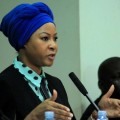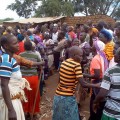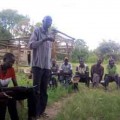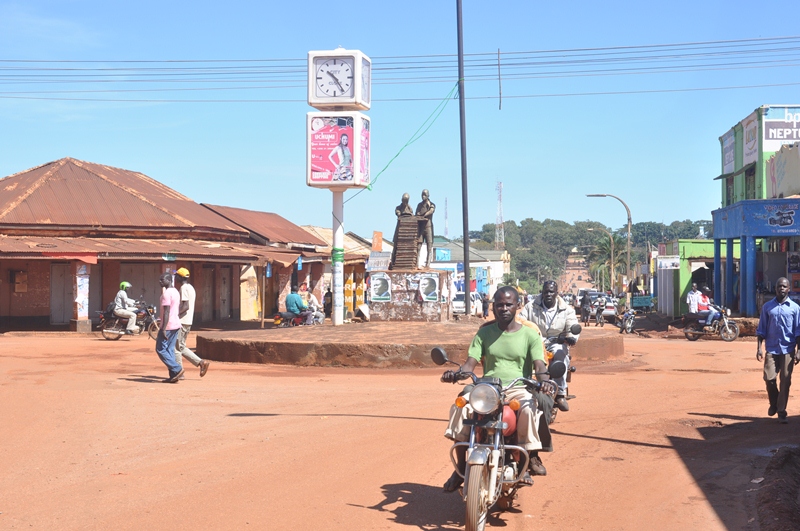MEDIA FOR CHANGE NETWORK
Aswa-Lolim land: The brewing conflict between Acholi, Jonam
Published
6 years agoon
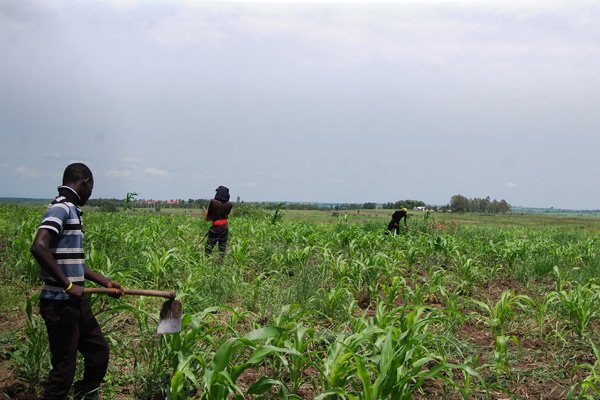
Contested. Casual workers weed a maize plantation on one of the farms within the contested area at Obira East Village, Gotapwoyo Sub-county in Nwoya District on April 20. PHOTO | TOBBIAS JOLLY OWINY
An upsurge in wrangles over land between the Jonam and Acholi communities in former Aswa-lolim Game Reserve in GotapwoyoSub-county, Nwoya District, has claimed at least 10 lives and left scores injured in the past one year.
On May 21, Uganda People’s Defence Force (UPDF) soldiers shot dead Kerukadho Ocaka, Socrate Onenrach, Walter Piwun and Innocent Taban at Obira South Village, Gotapwoyo Sub-county in Nwoya.
The incident occurred when an unidentified number of locals armed with machetes, bows, arrows and spears allegedly attacked a UPDF detach on a disputed piece of land within the former game reserve owned by Lt Gen Charles Otema Awany, the UPDF Reserve Forces commander.
On June 8, police at Pakwach Central Police Station blocked a group of more than 100 demonstrators from crossing Pakwach Bridge as theyattempted to show grievance over the killings and mistreatment of their colleagues.
The district police commander, Mr Frank Muzura, said the demonstration was against the presidential directives on Covid-19, which prohibit gatherings of more than 10 people.
Efforts to reach Gen Otema via his known telephone contact over the issue have proved futile.
However, Mr Richard Todwong, Gen Otema’s brother, told Daily Monitor that his brother rightfully acquired the land.
“On behalf of the Awany family, we have never grabbed any land there, he (Gen Otema) has not even cheated any landowner of a penny, we paid for all we have there, including buying others’ interests there,” Mr Todwong said.
Mr Todwong claimed Gen Otema had leasehold titles from the district land board for the contested land including that at Obira Village where the shooting happened.
Although survivors claim they had gone to Gen Otema’s farm to negotiate for release of their properties that had been confiscated by the soldiers who ordered them to vacate the land, police said the victims were armed and intended to attack the soldiers.
The incident brings to 10 the total number of people killed over land contests within the area between May 2019 and May 2020.
Mr Ben Latim Openy, the Gotapwoyo Sub-county chairperosn, said of 14 incidents of attacks, members of the Jonam community that crossed from Pakwach District had committed 12.
Mr Openy said members of Jonam community strongly believe and treat the former reserve as their customary-owned land.
“The claimants ignore our offices and that of the sub-county land committee, and instead report to Pakwach authorities accusing Acholi of displacing them,” Mr Openy added.
Although Gen Otema reportedly possess at least 10,000 acres within the former game reserve, we could not independently verify this from the district land office.
“Several mediations in the past by the political and cultural leaders have not helped. The Lands ministry must come to the ground and declare the status of this land so that the matter is sorted out once and for all,” Mr Openy said.
In 2014, a meeting convened by Mr Todwong (then Minister without portfolio) to resolve the dispute between the Acholi community and Jonam people over ownership of land turned rowdy when the Jonam accused theleadership of Nwoya of threatening to evict them from an area they once occupied for decades before fleeing to West Nile for safety when the Lord’s Resistance Army war intensified.
Mr Todwong then prematurely closed the meeting.
Last year, the two tribes were embroiled in a heated conflict over a compensation scheme by Uganda Electricity Transmission Company Limited (UETCL) for a 9sqkm stretch of land at Yagopino, in Gotapwoyo Sub-county, Nwoya.
UETCL assessed 45 project-affected persons reportedly of Acholi origin but a new group of 65 project-affected persons turned up fromPakwach demanding compensation since they are the rightful owners of the land.
Leaders speak out
Mr Ruoth Moses Ogenwrot Omach, the leader of Paroketo Parish in Pakwach, on Monday warned that unless the two tribes urgently sit and mediate the matter, the situation could get out of hand.
“We don’t want to be pulled into the situation of Madi or Acholi in Apaa because some parties failed to play their cards rightly. After the insurgency, people resettled there again and the land board needed to act impartially,” Mr Omach said.
On Tuesday, Mr Emmanuel Ongiertho, the Jonam County Member of Parliament in an interview with Daily Monitor, blamed the protracted conflicts over the land on the Nwoya District Land Board whom he said had failed to act impartially and objectively in issuing out the land.
“We have records of so many of our people whose application documents for the land have never been validated from the time whthe land was still under Amuru. That problem has persisted, the land board considers more those from the Acholi side,” Mr Ongiertho said.
Because of delayed consideration of their applications, Mr Ongiertho said many Jonam people settled on the land although it was never inspected.
He added that the same land was allocated by the district to other developers, sparking conflict.
“Unfortunately, the Acholi chief, Rwot David Onen Achana is still out of the country, otherwise we would have held a meeting to seek solutions” Mr Ruoth Ogenrwot said.
He added that thousands of Jonam people are peacefullysettled in Amuru District because their land board allowed them to apply for the land they previously occupied.
But Nwoya District authorities insist that there was no need to inspect the land priorto leasing whether occupied or not since the settlers encroached and settled there illegally.
“It is unfortunate that these victims are fronting customary claims over this land. Instead, our brothers and sisters from across the Nile (Pakwach or Nebbi) come with letters from their districts to claim land there, that is unacceptable,” Mr Zeru Abukha, the chairman Nwoya land board, said.
Mr Abukha said whoever does not have titles to justifyownership of land in that area is occupying it illegally.
“For example, the attackers who were shot dead trespassed into a property owned by Gen Otema. Fortunately, Gen Otema possess a title for the piece of land in question,” Mr Abukha said.
Land status
Aswa-Lolim Game Reserve
Nearly 95 per cent of Gotapwoyo Sub-county land falls under the former Aswa-Lolim Game Reserve (measuring approximately 46,000 hectares in size).
When the colonial government declared the area a game reserve in 1952, the evacuated people were compensated by relocation to safer areas in Gulu, Pader, Lamwo and Amuru while the Jonam were resettled insidePakwach and Nebbi districts.
The status remained so until 1972 when it was degazetted as a wild animal sanctuary and handed to the respective local governments (district land boards).
As early as 2008 following an end to the LRA war, people started to return to the area to settle or do farming, the same period wrangles began to escalate.
However, members of both Jonam and Acholi communities rushed to occupy plots or chunks of land within Aswa-lolim area basing on customary claims.
But any land deal done on a former public land without the involvement of the district land board becomes null and void since one must go through the board to process and possess a deed title, so that they can own the land.
Original Post: Daily Monitor
You may like
-
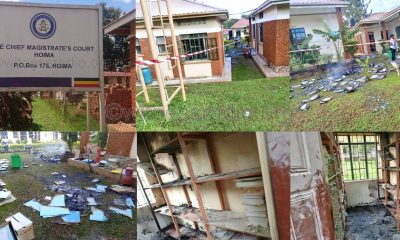

Hoima Court fire: Witness Radio is dreaded as evidence in lawsuits filed against high-profile individuals could have been destroyed.
-


Six cattlemen opposed to the Tilenga oil project-related forced land eviction have been granted bail but will remain in prison…
-


Community land rights defenders that have been on trial since 2020; are set to return to court this January.
-


UNFSS loses significance as critical issues affecting smallholder farmers are not mentioned – Criticized by Rights groups and experts
-


Global agribusiness continues to displace rural communities
-


The global farmland grab goes green
MEDIA FOR CHANGE NETWORK
Indigenous communities’ complaint against World Bank-linked Nepal Cable Car Project declared eligible for investigation.
Published
21 hours agoon
February 5, 2026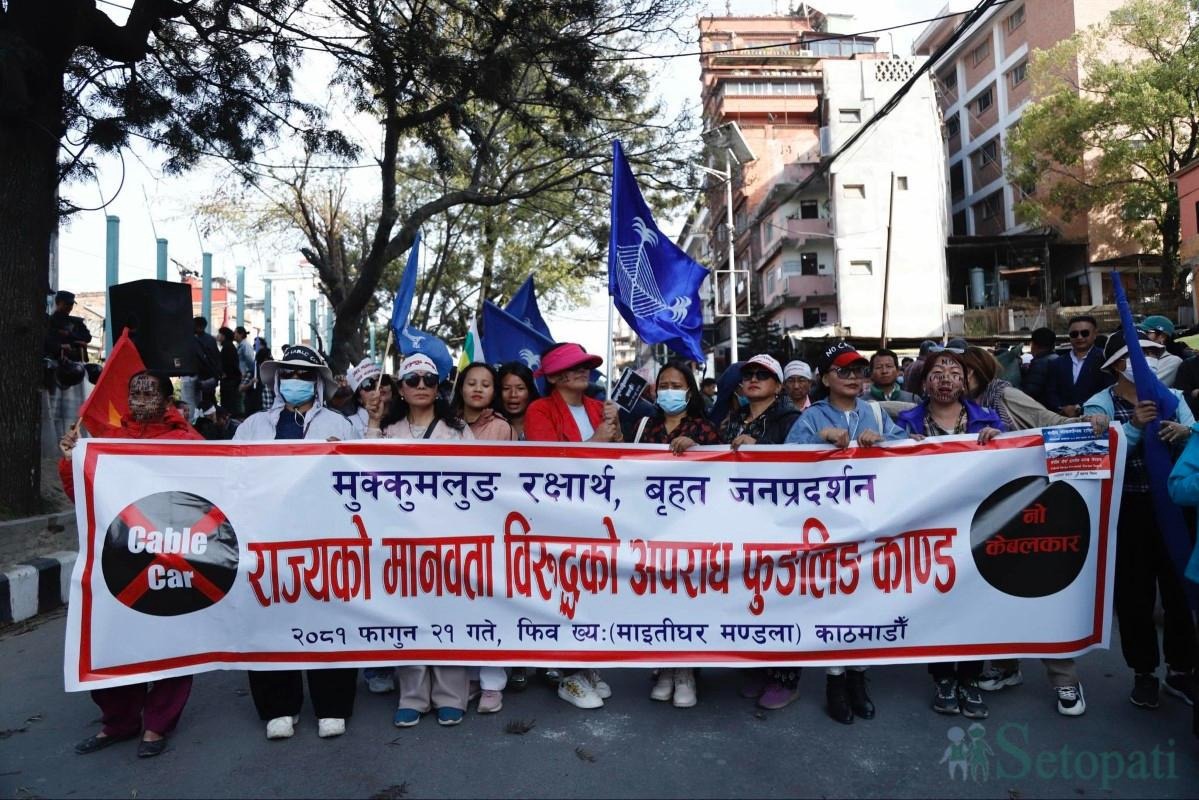
By Witness Radio team
Indigenous Yakthung (Limbu) communities in eastern Nepal have fought hard for recognition after the World Bank Group’s accountability mechanism acknowledged a complaint about rights violations, underscoring their ongoing struggle to protect their land and culture.
The Compliance Advisor Ombudsman (CAO), the independent watchdog of the World Bank Group, accepted the complaint for further assessment and formally registered the case in December 2025. The decision clears the way for a potential mediation process or a full compliance investigation into whether the project breached the IFC’s environmental and social safeguard standards.
In August 2025, Indigenous Yakthung leaders, supported by lawyers and civil society organizations, filed a complaint against the IFC’s advisory support to IME Group for the $22 million Pathivara (Mukkumlung) cable car project in Taplejung District. This filing marks a critical step in holding the project accountable for alleged rights violations and environmental harm.
The cable car is being constructed on Mukkumlung Mountain, a sacred ancestral landscape central to the Yakthung people’s spirituality and Identity, risking irreversible damage to their cultural heritage and Identity.
According to the complainants, construction has already resulted in the felling of more than 10,000 trees in and around the Kanchenjunga Conservation Area, threatening habitats of endangered species such as red pandas, snow leopards, and Himalayan musk deer, underscoring the project’s severe environmental consequences.
“The reason the Complainants and their advisors seek to engage with the CAO is because of the social and environmental harms caused by one of the cable car projects in particular, the Pathivara project. This cable car project has severe impacts on one of the most sacred sites of the Limbu (Yakthung) Indigenous Peoples, including their forests, flora, fauna, heritage (tangible and intangible), and Mukkumlung mountain. The Pathivara project has been imposed on the local Indigenous communities without their Free, Prior, and Informed Consent (FPIC), and has proceeded to destroy their lands, forests, sacred sites, and livelihoods. When the people protest, they have been met with extreme violence and repression by security forces.” The community complaint submitted to the Ombudsman in August 2025 read.
Between August 2022 and July 2024, the IFC provided advisory services to IME Group related to four cable car projects in Nepal, including the Pathivara project. The complainants allege that the IFC failed to ensure that its Environmental and Social Performance Standards, particularly those protecting Indigenous Peoples, were applied.
“The cable car project is tantamount to cultural genocide of the Limbu nation in violation of our rights guaranteed in Nepal’s constitution, the Treaty of 1774 with the Gorkha kingdom, and the UN Declaration on the Rights of Indigenous Peoples,” said Advocate Shankar Limbu, Vice-Chair of LAHURNIP.
Community members say they were unaware of IFC’s involvement until July 2024, nearly two years after construction began, due to the delayed public disclosure of the advisory support.
Accordingly, the complaints stated that the project did not meet the IFC Performance Standards, including failures to assess and manage project impacts, conduct land acquisition, and address involuntary resettlement, among others.
“The IFC’s inability to ensure its client integrated the Performance Standards into the implementation of its plan for delivering cable car projects around Nepal has led to severe breaches of the protections that were supposed to safeguard vulnerable and marginalized communities. Today, Indigenous Limbu communities are being beaten, shot at, arrested, and terrorized for trying to defend their land and way of life,” the community complaints read.
Although the IFC exited the advisory role in 2024, it continues to invest in Global IME Bank, Nepal’s largest commercial bank and a core company within the IME Group. Over the past decade, the IFC has provided more than $50 million in financing to the conglomerate, along with a $500 million trade finance guarantee, which critics say gives the institution ongoing leverage and responsibility.
In its eligibility determination, the CAO found that the complaint met the required criteria, including a plausible link between IFC-supported activities and the alleged environmental and human rights harms. The case has now entered a 90-day assessment phase, during which the CAO will consult with the affected communities, the IFC, and the company involved.
At the end of the assessment, the parties may choose to engage in dispute resolution through mediation or proceed to a full compliance investigation examining whether the IFC failed to follow its own safeguard policies.
The advocates representing the communities welcomed the CAO’s decision.
“We welcome the fact that the CAO has found this complaint eligible, and look forward to working with investigators to uncover how things went so badly wrong. The IFC is currently reviewing its Performance Standards and must learn lessons on consultation, safeguarding cultural heritage and biodiversity, respecting Indigenous Peoples’ rights, and protecting them against retaliation,” Kate Geary, Programme Director at Recourse, one of the organizations that supported the communities in the complaint, reveals.
Further, their appeal is for the CAO to handle the case with utmost urgency. “The CAO investigation into the complaint against the cable car project should move swiftly to remedy ongoing impacts of the project, including retaliations against the local communities,” added Advocate Shankar Limbu.
Indigenous leaders are demanding an immediate halt to construction, the withdrawal of security forces from the area, the release of all IFC-related project documents, and an independent investigation into alleged human rights abuses, urging urgent action to protect their rights and environment.
Related posts:
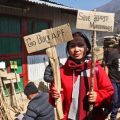
 CSOs call for meaningful changes in the World Bank’s Dispute Resolution Service to foster access to justice for project-affected communities.
CSOs call for meaningful changes in the World Bank’s Dispute Resolution Service to foster access to justice for project-affected communities.
 The World Bank Must Be Held Accountable for Harm Inflicted on Tanzanian Communities by Tourism Project
The World Bank Must Be Held Accountable for Harm Inflicted on Tanzanian Communities by Tourism Project
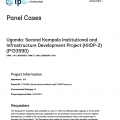 Witness Radio – Uganda and partners welcome a public acknowledgment of the complaint lodged before the World Bank’s Inspection Panel.
Witness Radio – Uganda and partners welcome a public acknowledgment of the complaint lodged before the World Bank’s Inspection Panel.
MEDIA FOR CHANGE NETWORK
The Witness Radio and Seed Savers Network Joint Radio program boosts Farmers’ knowledge of seed and food sovereignty.
Published
2 days agoon
February 4, 2026
By Witness Radio team
Across Africa, seed laws are increasingly structured to favor commercial seed systems, leaving smallholder farmers with limited control over the seeds they rely on for food production. While governments often justify these laws as necessary for quality control and increased productivity, farmers and civil society organizations argue that they deepen dependency, erode Indigenous knowledge, and undermine food sovereignty.
Smallholder farmers produce the majority of the world’s food. Recognizing practices such as saving, exchanging, and replanting seeds can empower farmers and reinforce their vital role in food security.
In response to this challenge, Witness Radio, in partnership with the Seed Savers Network (SSN) in Kenya, is joining hands to save African indigenous seeds by using media to build power and share knowledge and skills with smallholder farmers across Africa and beyond on seed sovereignty and farmer-led food systems.
Last Thursday, Witness Radio and the Seed Savers Network aired the first episode of the program live, featuring representatives of smallholder farmers and civil society organizations from across the African continent. The discussion, which was live on Witness Radio, focused on sharing Indigenous knowledge and practical approaches to saving and conserving African Indigenous seeds.
“It is a crucial time to speak about food sovereignty because, as Indigenous People, talking about food sovereignty is not just an agricultural issue, according to us. It’s a vital act of decolonization and a sign of cultural survival to us and also self-determination.” Said June Bartuin, the Executive Director for Indigenous Peoples’ for peace and climate justice, Kenya, during the first episode of the program.
Across Africa, several policies and laws restrict farmers’ rights to save, exchange, and sell their own seeds. In East Africa, the recently introduced EAC Seed and Plant Varieties Draft Bill 2025 has sparked protests from smallholder farmers and activists, who argue that some of its provisions threaten farmer-led seed systems and favor multinational seed companies.
In Ghana, the Plant Variety Protection Act of 2020 restricts farmers’ seed management practices, underscoring the urgent need for policy reforms that support farmer-led seed systems.
“We have this Plant Variety Protection Act of 2020, which has made it easier for seed companies and the commercial sector to control the seed system,” said Atim Robert Anaab, who works with Trax Ghana and the Beela Project in Northern Ghana, adding that, “The law requires seeds to be certified according to standards that most small-scale farmers simply cannot meet.”
Such laws have reshaped Africa’s food systems by pushing farmers toward commercial seeds that must be purchased every planting season. These seeds are often sold alongside chemical fertilizers and pesticides, significantly increasing production costs for smallholder farmers.
Priscilla Nakato, Chairperson of the Informal Alliance of Communities Affected by Irresponsible Land-Based Investments in Uganda, noted that these policies have also displaced traditional storage and seed preservation practices.
“In the past, every household had a granary, used not only to store food but also to preserve seeds for the next planting season. Many communities still hold this resilience, and reviving these practices can inspire hope for food sovereignty.”
Beyond economics, restrictive seed laws are accelerating the erosion of Indigenous knowledge and cultural practices. June Bartuin explained that women were traditionally the custodians of seeds, preserving them using low-cost methods such as smoke storage in traditional houses.
“This maize could be stored for two, three, even five years, and when planted, it germinated very well,” she added.
The collaboration between Witness Radio and the Seed Savers Network brings together grassroots organizing and community media to amplify farmers’ voices. The Seed Savers Network, a grassroots organization based in Kenya, works with more than 500,000 farmers and supports 121 community seed banks across the country.
According to Mercy Ambani, Resource Mobilization Officer at Seed Savers Network, the organization focuses on rebuilding farmers’ confidence, knowledge, and rights, making platforms such as Witness Radio ideal for reaching farmers directly.
“Our vision is to protect seed sovereignty, conserve biodiversity, and strengthen farmers’ rights through policy advocacy and practical action,” she said.
Through initiatives such as the Seed School, farmers, researchers, and activists are trained in seed selection, storage, preservation, and community seed bank management.
“In December 2024, Kenyan farmers achieved a landmark court ruling that struck down parts of the Seed and Plant Varieties Act, showing the power of collective action and legal advocacy to protect farmers’ rights.”
“This ruling showed that there is power in numbers,” said Ambani. “When farmers raise their voices together, change is possible.”
Regional knowledge exchange is also growing. Farmers from Uganda and Ghana who attended the Seed Savers Boot Camp have returned to their communities to establish household seed banks, kitchen gardens, and farmer field schools.
“My home has become a farmer’s field school. People are hungry for this knowledge,” said Nakato.
Without reforms that recognize and protect farmer-managed seed systems, farmers risk losing control over their seeds — and with them, control over food, culture, and livelihoods.
“If we lose our seeds, we lose our culture, our food, and our future,” Bartuin emphasized.
Wokulira Geoffrey Ssebaggala, Team Leader at Witness Radio, highlighted the importance of creating space for farmers to share knowledge and experiences.
“We are providing a platform where farmers and experts can exchange knowledge on sustainable farming practices. We believe this radio content will have a real impact on food and seed sovereignty across Africa.” Mr. Ssebaggala added.
The radio series will continue to provide practical knowledge, farmer voices, and policy analysis to support sustainable agriculture across Africa.
Related posts:

 Happening shortly! Kenya’s upcoming court ruling on the Seed Law could have a significant impact on farmers’ rights, food sovereignty, and the country’s food system.
Happening shortly! Kenya’s upcoming court ruling on the Seed Law could have a significant impact on farmers’ rights, food sovereignty, and the country’s food system.
 Seed Sovereignty: Most existing and emerging laws and policies on seeds are endangering seed saving and conservation on the African continent.
Seed Sovereignty: Most existing and emerging laws and policies on seeds are endangering seed saving and conservation on the African continent.
 The EAC Seed & Plant Varieties Bill, 2025, is a potential threat to smallholder farmers, as it aims to disengage them from the agriculture business, according to experts.
The EAC Seed & Plant Varieties Bill, 2025, is a potential threat to smallholder farmers, as it aims to disengage them from the agriculture business, according to experts.
 Seed Boot Camp: A struggle to conserve local and indigenous seeds from extinction.
Seed Boot Camp: A struggle to conserve local and indigenous seeds from extinction.
MEDIA FOR CHANGE NETWORK
Close to six years on, Pangero Chiefdom subjects still linger in pain after the government army’s forceful takeover of their ancestral land.
Published
3 days agoon
February 3, 2026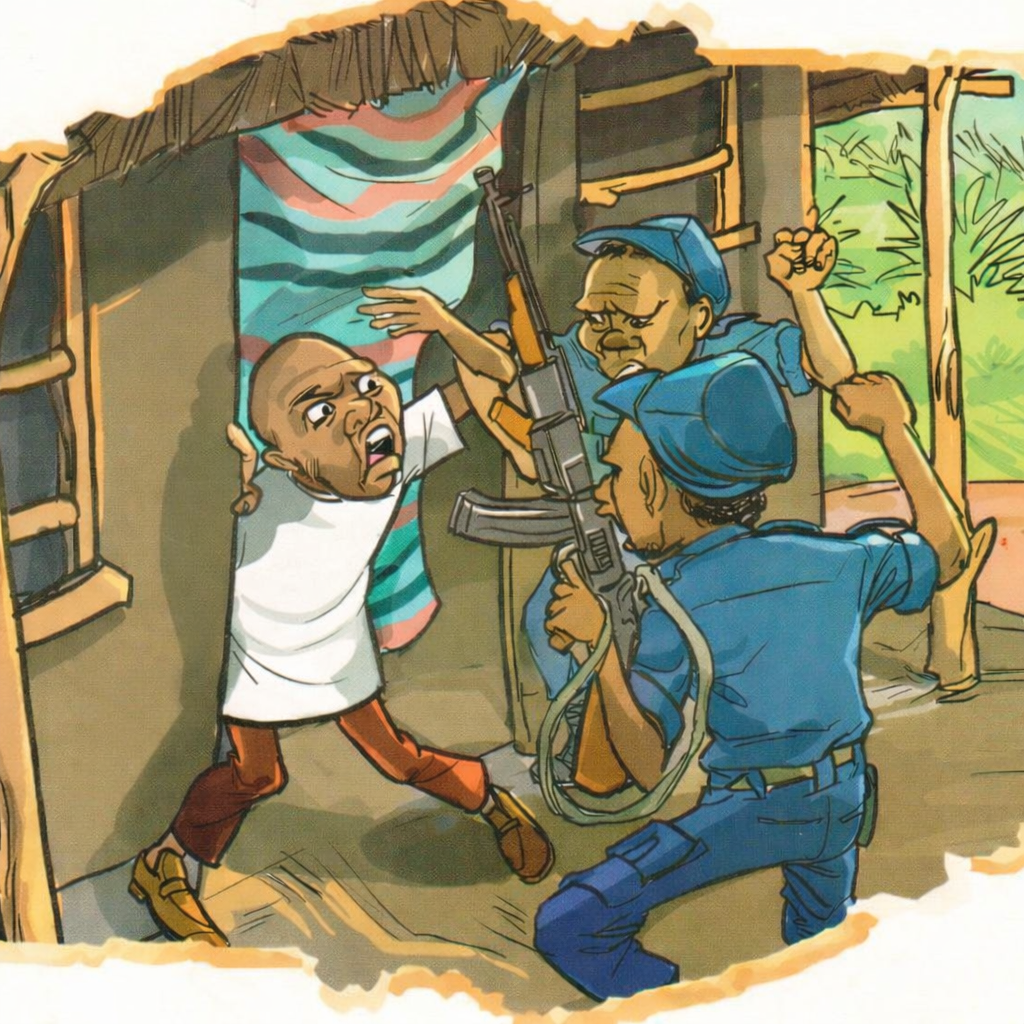
By Witness Radio Team
It was a bolt from the blue—an unimaginable shock that arrived without warning. Close to six years on, its consequences have hardened into everyday reality, and justice remains elusive. That shock was felt most acutely in Pangero Chiefdom, where a once-stable community is still grappling with the aftermath of an abrupt and forceful military land takeover, highlighting ongoing land injustice.
The Pangero Chiefdom of the Alur Kingdom is located in Koch Parish, Nebbi Sub-County, Nebbi District, in north-western Uganda, north of Lake Albert and near the Uganda–DR Congo border. For decades, families here depended on the land for farming, food, and cultural continuity, with traditions and livelihoods deeply tied to the soil.
The wounds from the land loss remain raw, and the community continues to demand the return of their land and justice for their suffering.
Over 100 families across Aleikra, Kochi Central, and Panyabongo villages have been directly impacted by the land grab, according to the Traditional Chief.
In Uganda, land is often taken from people with low incomes through a system lacking explicit legal protections, raising questions about the legitimacy and fairness of land seizures, especially when communities are evicted without free, prior, and informed consent.
“When forces such as the Army occupy community land, people are always afraid even to ask why they are settling or why they have settled on their land. It becomes difficult to question men in uniform,” said Mr. Ulama Dison Duke Ukerson, the Traditional Chief of Pangero Chiefdom, in an interview with Witness Radio Uganda.
In March 2020, hell broke loose in the chiefdom as residents woke up to find UPDF soldiers camping on their land. Many initially thought the soldiers were temporarily stopping over on their way elsewhere. However, after some time, it became clear that the force was not moving on but instead settling in the lush environment of Pangero.
When confronted, residents claim the soldiers explained that they were taking refuge, with Zombo District as their ultimate destination.
“They have stayed there for now, close to six years. Initially, they told us they would take refuge for a few days and later move to the Zombo District. Some left, but others remained. We initially thought they were staying for a few weeks. Since then, they have stayed on our land without paying anything,” said Gladys Budongo, an elder in the chiefdom, in an interview with Witness Radio.
Forty-one-year-old Doreen Kawambe, a resident of Aleikra Village, is among those who lost part of their land during the takeover. Doreen said she originally owned seven acres inherited from her father.
“When the UPDF came, they seized three acres of our land. The remaining land is difficult to access. My family was left with only four acres. We can no longer go to the forest for water, and the areas we used to cultivate are now guarded. Food has become a serious problem,” she said.
Before the takeover, Doreen’s land provided enough income to sustain her family. “From one acre, I could earn up to 800,000 shillings (about 224.94 USD) or more in a season. Now, with less land and limited access, survival is tough.” She explained.
Gladys Budongo, a 61-year-old widow, also lost her late husband’s five-acre family land, which is part of a larger ancestral estate that the family has occupied for decades.
Amid community resistance and ongoing efforts to reclaim their land, the Army conducted surveys and valuations in 2023 and 2024. However, elders like Gladys Budongo claim the process was irregular and imposed without community consent, highlighting the need for legal accountability.
“Koch Land Committee also pressured the community to accept the survey exercise. Although it was supposed to represent the local population, it was not democratically elected by consensus, as is traditional in Alur communities, and instead consisted of an imposed elite who pressured us to surrender our land,” she said.
According to elders interviewed by Witness Radio, during an announcement meeting on September 19, 2025, facilitated by officials from the UPDF Land Board, the national surveyor, and the Commander of Koch Army Barracks, community members were compelled to sign documents accepting meager compensation for land seized five years earlier.
“Residents whose land was surveyed were given two choices: either sell their land to the Army by accepting the compensation offered or refuse the UPDF’s offer,” the area chief said, adding that officials barred him from speaking or defending his chiefdom.
“Leaders in the area are rough when we oppose this land grab. Even in meetings, they don’t allow me to speak. On the few occasions I attended and got silenced,” he said.
Mr. Opio Okech, a community land defender, blamed the government and the Army for forcefully occupying people’s land.
“The forced decision to sell land to the government is similar to eviction because people have no say. The problem started when the government entered the land, stayed for a long time without proper notice, and then decided it would not leave and instead offered compensation. It looks, smells, and walks like a forceful eviction,” he said.
Despite promises of compensation, Gladys and others say they have not received any payment.
“They forced people to sign documents, but nobody has been paid yet. Some were threatened with arrest if they protested,” she said.
Koch Resident District Commissioner (RDC) Mr. Abak Robert, representing the Office of the President, denies allegations of land grabbing, stating the land was acquired on a willing buyer, willing seller basis, which raises questions about the transparency and legality of the process.
“I personally participated in monitoring the project-affected persons. People who accepted giving land to the UPDF were properly valued, accepted the figures, and signed willingly,” he said in an interview with Witness Radio.
When asked how this arrangement worked, given that compensation was considered only after the land had already been forcibly taken, he responded that the government would soon pay the affected people.
“Compensation is expected soon, and the community is agreeable to receiving monetary payment,” the RDC added, noting that the land currently occupied by the UPDF in Pangero Chiefdom spans more than 242.811 hectares.” He added.
However, affected residents insist that the survey and valuation process involved intimidation and coercion.
Capt. David Kamya, the 4th Division Public Information Officer based in Gulu District, declined to comment about the UPDF’s improper land acquisition upon being contacted by Witness Radio.
“How sure are you that the UPDF grabbed the land? I was told that if someone wants to talk about such matters, they must be on the ground. Come, and we meet and see this physically,” he said before hanging up.
The consequences of the land seizure extend beyond economics. According to the chiefdom elders, families struggle to sustain livelihoods, children go hungry, and elders feel powerless in the face of military authority.
“People are afraid to speak out. We are threatened when we ask for justice. It feels like the community has no voice. The loss of ancestral land is also cultural. Trees, rivers, and open spaces that connected generations have been taken over, disrupting a way of life that has lasted centuries,” she added.
Nearly six years after the UPDF’s arrival, the Pangero Kingdom remains a community in limbo.
“We want someone to stand for us to stop them from taking our land or even buying it as they promise. They refuse to hear the elders’ voices and do whatever they want. We want our land back,” said the traditional chief, whose houses now accommodate soldiers.
Related posts:

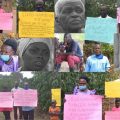 Will Uganda’s next government break the land-grabbing cycle?
Will Uganda’s next government break the land-grabbing cycle?
 Uganda’s plan to allow forceful takeover of private land stirs anger
Uganda’s plan to allow forceful takeover of private land stirs anger
 Ugandan army to punish soldiers for torturing Journalist in Kampala
Ugandan army to punish soldiers for torturing Journalist in Kampala
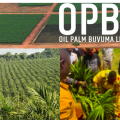 Nine (9) years and still counting: Buvuma residents still await compensation for land grabbed by the Oil palm project.
Nine (9) years and still counting: Buvuma residents still await compensation for land grabbed by the Oil palm project.

US-DRC Strategic Partnership Agreement Faces Constitutional Challenge in Court

Indigenous communities’ complaint against World Bank-linked Nepal Cable Car Project declared eligible for investigation.

The Witness Radio and Seed Savers Network Joint Radio program boosts Farmers’ knowledge of seed and food sovereignty.

Close to six years on, Pangero Chiefdom subjects still linger in pain after the government army’s forceful takeover of their ancestral land.

Will Uganda’s next government break the land-grabbing cycle?

Women environmental rights defenders in Africa are at the most significant risk of threats and attacks – ALLIED New report

Swedish pension fund drops TotalEnergies amid rising EACOP risks

Uganda moves toward a Bamboo Policy to boost environmental conservation and green growth.

Innovative Finance from Canada projects positive impact on local communities.
Over 5000 Indigenous Communities evicted in Kiryandongo District
Petition To Land Inquiry Commission Over Human Rights In Kiryandongo District
Invisible victims of Uganda Land Grabs
Resource Center
- Land And Environment Rights In Uganda Experiences From Karamoja And Mid Western Sub Regions
- REPARATORY AND CLIMATE JUSTICE MUST BE AT THE CORE OF COP30, SAY GLOBAL LEADERS AND MOVEMENTS
- LAND GRABS AT GUNPOINT REPORT IN KIRYANDONGO DISTRICT
- THOSE OIL LIARS! THEY DESTROYED MY BUSINESS!
- RESEARCH BRIEF -TOURISM POTENTIAL OF GREATER MASAKA -MARCH 2025
- The Mouila Declaration of the Informal Alliance against the Expansion of Industrial Monocultures
- FORCED LAND EVICTIONS IN UGANDA TRENDS RIGHTS OF DEFENDERS IMPACT AND CALL FOR ACTION
- 12 KEY DEMANDS FROM CSOS TO WORLD LEADERS AT THE OPENING OF COP16 IN SAUDI ARABIA
Legal Framework
READ BY CATEGORY
Newsletter
Trending
-

 MEDIA FOR CHANGE NETWORK2 weeks ago
MEDIA FOR CHANGE NETWORK2 weeks agoWomen environmental rights defenders in Africa are at the most significant risk of threats and attacks – ALLIED New report
-

 MEDIA FOR CHANGE NETWORK1 week ago
MEDIA FOR CHANGE NETWORK1 week agoEvicted from their land to host Refugees: A case of Uganda’s Kyangwali refugee settlement expansion, which left host communities landless.
-

 MEDIA FOR CHANGE NETWORK1 week ago
MEDIA FOR CHANGE NETWORK1 week agoWitness Radio and Seed Savers Network are partnering to produce radio content to save indigenous seeds in Africa.
-

 MEDIA FOR CHANGE NETWORK4 days ago
MEDIA FOR CHANGE NETWORK4 days agoIndigenous communities in Eastern Nepal accuse the World Bank’s Linked Cable Car Project of rights violations.
-

 MEDIA FOR CHANGE NETWORK6 days ago
MEDIA FOR CHANGE NETWORK6 days agoWhy govt is launching a comprehensive digital land registry
-

 MEDIA FOR CHANGE NETWORK3 days ago
MEDIA FOR CHANGE NETWORK3 days agoClose to six years on, Pangero Chiefdom subjects still linger in pain after the government army’s forceful takeover of their ancestral land.
-

 MEDIA FOR CHANGE NETWORK2 days ago
MEDIA FOR CHANGE NETWORK2 days agoThe Witness Radio and Seed Savers Network Joint Radio program boosts Farmers’ knowledge of seed and food sovereignty.
-

 MEDIA FOR CHANGE NETWORK21 hours ago
MEDIA FOR CHANGE NETWORK21 hours agoIndigenous communities’ complaint against World Bank-linked Nepal Cable Car Project declared eligible for investigation.

